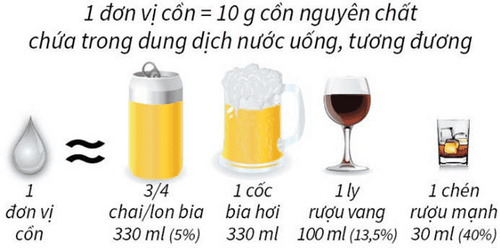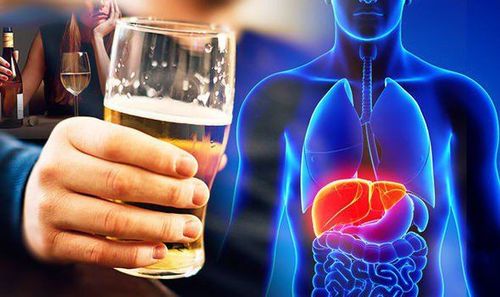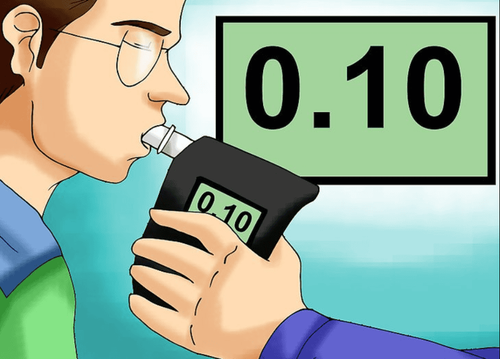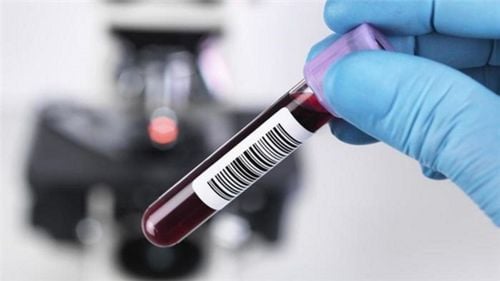This is an automatically translated article.
The internet is full of mixed and unverified information about alcoholic beverages, like alcohol. Although drinking small amounts of alcohol can have health benefits, alcohol is highly addictive and especially harmful when consumed in excess. The effects of alcohol on a user's health are variable depending on the individual and the type of alcohol used.1. What are alcoholic beverages?
The main ingredient in alcoholic beverages is ethanol. Commonly known as alcohol, ethanol is a substance that makes users feel intoxicated after drinking.Alcoholic beverages are produced by the sugar yeasts in certain carb-rich foods, such as grapes - used to make wine - or grains - used to make beer. Alcohol is one of the most common neurotransmitters in the world, which can have a dramatic effect on a user's mood and mental state.
By inhibiting self-consciousness and perception, alcohol can encourage users to act in a controlled manner. At the same time, weakening judgment and motivating behavior can cause many people to regret.
2. Liver function
The liver is an important organ in the body with hundreds of essential functions.One of the main roles of the liver is to neutralize various toxins when consumed by the user. For this reason, the liver is particularly vulnerable to alcohol damage.
There are a number of liver diseases that occur as a result of excessive alcohol consumption including: Fatty liver, which is caused by an increase in fat inside the liver cells. Fatty liver develops in 90% of people who drink more than 1/2 ounce (15 ml) of alcohol per day and is usually asymptomatic and fully reversible.
In heavy drinkers, heavy drinking can cause the liver to become inflamed. In the worst case scenario, liver cells will die and be replaced by scar tissue, leading to a serious condition called cirrhosis. Cirrhosis is not completely reversible and is associated with many serious health problems. When cirrhosis develops, a liver transplant may be the only solution.
3. Effects on the brain
Excessive alcohol consumption can have many adverse effects on the brain. Ethanol reduces communication between brain cells - a short-term effect that controls the symptoms of intoxication.Binge drinking can even lead to unconsciousness, a characteristic phenomenon of dementia or temporary amnesia following heavy drinking. These effects are temporary, but chronic alcohol abuse can cause permanent changes in brain organelles, leading to impaired brain function.
Because the brain is a very sensitive organ to damage, chronic alcohol abuse can increase the risk of dementia and cause brain shrinkage in middle-aged and elderly people. In the worst cases, severe brain damage caused by alcohol can cause sudden death.
In contrast, drinking in moderation is associated with a reduced risk of dementia - especially in older adults.
4. Impact on weight

Việc uống bia thường xuyên có thể gây tăng cân
Alcohol in beverages ranks as the second most calorie-dense nutrients after fat, at about 7 calories per gram. Beer has the same number of calories as sugary soft drinks, while red wine has twice as many calories.
However, studies investigating the link between alcohol and weight have provided inconsistent results. For example, research suggests that drinking moderate amounts of alcohol is associated with weight loss, while continued consumption can promote weight gain.
In fact, regular beer consumption can cause weight gain, while wine consumption can cause weight loss.
5. Impact on the heart
Heart disease is the leading cause of death in modern society. This is a widespread condition, most commonly heart attack and stroke.The relationship between alcohol and heart disease is complex and depends on a number of factors. Moderate drinking is associated with a reduced risk of heart disease, while heavy drinking or alcohol abuse seems to increase the risk.
Moderate alcohol consumption can have benefits such as:
Increases the amount of good cholesterol HDL in the blood Lowers blood pressure, a major factor in heart disease Lowers blood fibrinogen levels, a key factor in the formation of fibrinogen Blood clots Reduces risk of diabetes Temporarily relieves stress and anxiety
6. Type 2 diabetes
Type 2 diabetes affects about 8% of the world's population. Occurs when blood sugar levels are abnormally high, type 2 diabetes is caused by a decrease in the absorption of glucose, or blood sugar, by cells, a phenomenon known as insulin resistance.Drinking alcohol in moderation seems to reduce symptoms of insulin resistance, preventing diabetes. Therefore, drinking alcohol with a meal can lower blood sugar by 16% compared to drinking water. In fact, overall diabetes risk tends to decrease with moderate alcohol consumption.
7. Cancer

Tiêu thụ rượu là một trong những nguy cơ gây ung thư miệng, cổ họng, đại tràng, vú và gan
Alcohol consumption is one of the risk factors for cancers of the mouth, throat, colon, breast and liver.
The cells in the mouth and throat are especially vulnerable to the harmful effects of alcohol.
Even mild alcohol consumption, one drink a day - is associated with a 20% increased risk of mouth and throat cancer. The incidence of disease occurrence increases with consumption. Consuming more than 4 glasses of alcohol a day can increase the risk of mouth and throat cancer fivefold, as well as increase the risk of breast, colon and liver cancer.
8. Birth defects
Alcohol abuse during pregnancy is the leading cause of birth defects. Drinking alcohol early in pregnancy is particularly risky for the developing fetus. In fact, alcohol can have adverse effects on development, growth, intelligence, and behavior - which can affect a child for the rest of his life.9. Danger of Addiction and Abuse
An estimated 12% of Americans are thought to have experienced alcohol dependence or abuse at least once in their lives. Alcoholism is one of the major causes of alcohol violence and disability in the United States and is a factor in many different diseases. Many factors can influence a person's alcohol use habits, such as family history, social environment, mental health, and genetics.Symptoms of alcoholism include uncontrollable cravings for alcohol, loss of control and self-control when drinking. So, when drinking habits begin to have an adverse effect on quality of life, users may already show signs of alcohol abuse and addiction.
Chronic alcohol abuse can cause serious health effects, affecting the entire function of the body, thereby causing diseases. For example, alcoholism can cause liver damage, including cirrhosis, brain damage, heart failure, diabetes, cancer, and infections.
10. Drink as much is enough
Alcohol intake recommendations are usually based on the amount of a standard cup. However, many people do not have a correct concept of what is a standard cup to measure. In the US, a standard cup for measuring alcohol intake is one cup containing 14 grams of alcohol. Beverage volume is based on the percentage of alcohol in the drink.
Khuyến nghị về lượng đồ uống có cồn thường dựa trên số lượng của một cốc tiêu chuẩn
Please dial HOTLINE for more information or register for an appointment HERE. Download MyVinmec app to make appointments faster and to manage your bookings easily.
Reference article: Healthline.com












